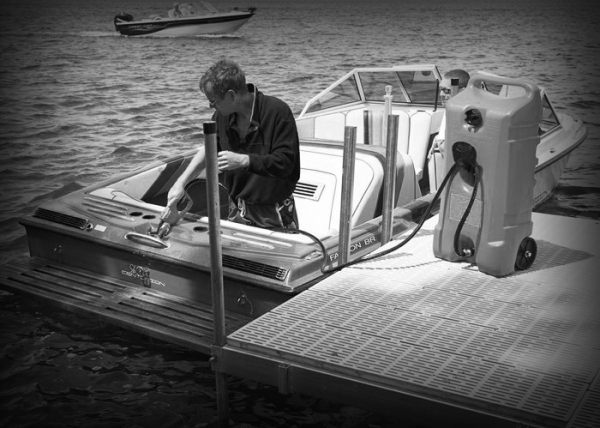Its a no brainer that the gas in your boat is always at risk of being exposed to water, especially with ethanol gas which will also absorb water from the air. One of the best ways to fight this problem before hand is to use a fuel stabilizer. Stabilizers prevent the chemical reactions that cause bad fuel from starting. However, they can't fix fuel that is already bad or phase separated. That fuel is a goner. We recommend you add the stabilizer when the fuel is fresh from the pump. This ensures that the fuel will stay in its best quality.
Another way to prevent water in your fuel is to use a fuel / water separator. These are usually installed on newer boats, but some older boats may have been fixed up with one somewhere down the line. A fuel water separator kit safeguards your motor and prevents any problems you may have due to bad fuel. Essentially it is a unit that gets added into your fuel line between your gas tank and your motor. It filters the fuel of any water that may have got inside your tank.
The last solution I have for you is to only fill your tank up with the amount of gas you think you will use for that day. Don't fill it all the way up. This will prevent you from having a large amount of gas left over that may end up sitting around for weeks before you use your boat again. This is a good practice for those who don't use their boat every weekend. Basically if there is not any gas in your tank while it sits in between uses, then you are not going to have any gas that can go bad due to water or just sitting around in the elements.
When filling up your boat, just remember that even clean gas can be bad for your motor. But if you take the right precautions ahead of time, your chances of fuel related service issues are going to minimize. So take the extra time and spend a few dollars on stabilizer and a separator to make sure down the road that your not wasting money on something that could have been avoided.


